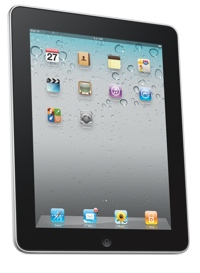The iPad succeeds because other tablets cost too much
As you doubtless know, Apple dominates the tablet market with the iPad. What's surprising is that one reason for this is that other tablets cost too much.
Ever since the first iPad’s debut at $499 for the base model, Apple has maintained a price advantage against new entrants to the space. According to a new report from iGR (http://www.igr-inc.com), entrants into the tablet space likely need to price their tablets far less than the $499 iPad 2 in order to stand a chance at generating the same level of sales.
"Our ongoing survey results are pretty clear and consistent: the vast majority of respondents are only interested in an iPad -- and it would take a discount well over $100 to convince them to buy another original equipment manufacturer’s tablet," says ays Matt Vartabedian, vice president of the wireless and mobile research service.
Almost all competing tablets launched to-date that have similar specs to the iPad -- i.e., screen size, processing power, battery life, weight, etc. -- have cost more than the iPad. One good example is the original Motorola Xoom. Even smaller tablets, such as the original Samsung Galaxy Tab 7-inch or the HTC Flyer, have cost more than the iPad. And as the march of Honeycomb-based tablets continued, the various manufacturers -- Acer, Asus, Toshiba, Sony, Lenovo -- have all made some sort of compromise in specifications or distribution model to reach that $499 price level.
Vartabedian says the "Apple premium" comes into effect on a closer examination of the primary research survey data. Potential iPad buyers are more likely to spend $499 or more for a tablet; potential Android tablet buyers are much less likely to spend a similar amount. In fact, they're more likely to spend substantially less than $399.
Of course, with the iPad, consumers recognize the elegant design and ease of use. They're willing to pay for that. They're less willing to fork out for products that seem like iPad wanna-bees.
-- Dennis Sellers













